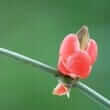Background
- On February 6, 2004, the U.S. Food and Drug Administration (FDA) issued a final rule prohibiting the sale of dietary supplements containing ephedrine alkaloids (ephedra) because such supplements present an unreasonable risk of illness or injury. The rule became effective 60 days from the date of publication.
- In 2005 this rule was struck down in Utah but reversed again four months later, so ephedra is currently banned throughout the United States. It remains unclear whether ephedra will re-appear on the market, despite widespread acknowledgement of significant safety risks, including serious potential cardiovascular events or death.
- Ephedra sinica, a species of ephedra (ma huang), contains the alkaloids ephedrine and pseudoephedrine, which have been found to induce central nervous system stimulation, bronchodilation, and vasoconstriction. In combination with caffeine, ephedrine appears to elicit weight loss (in trials of 1-12 months duration). However, studies of ephedra or ephedrine monotherapy have been equivocal. Numerous trials have documented the efficacy of ephedrine in the management of asthmatic bronchoconstriction and hypotension. However, commercial preparations of non-prescription supplements containing ephedra have not been systematically studied for these indications.
- Major safety concerns have been associated with ephedra or ephedrine use, including hypertension (high blood pressure), tachycardia, CNS excitation, arrhythmia, myocardial infarction (heart attack), and stroke.
- Despite widely publicized safety concerns and the highly publicized 2003 death of a U.S. major league baseball pitcher thought to be related to ephedra, prior to the ban on ephedra, 14% of individuals using non-prescription weight-loss products in the United States continued to take ephedra or ephedrine-containing products.
References
Natural Standard developed the above evidence-based information based on a thorough systematic review of the available scientific articles. For comprehensive information about alternative and complementary therapies on the professional level, go to . Selected references are listed below.
- Abourashed EA, El Alfy AT, Khan IA, et al. Ephedra in perspective--a current review. Phytother Res 2003;17(7):703-712.
View Abstract - Ashar BH, Miller RG, Getz KJ, et al. A critical evaluation of Internet marketing of products that contain ephedra. Mayo Clin Proc 2003;78(8):944-946.
View Abstract - Baker SK, Silva JE, Lam KK. Pseudoephedrine-induced hemorrhage associated with a cerebral vascular malformation. Can J Neurol Sci 2005;32(2):248-52.
View Abstract - Bent S, Tiedt TN, Odden MC, et al. The relative safety of ephedra compared with other herbal products. Ann Intern Med 3-18-2003;138(6):468-471.
View Abstract - Boozer CN, Daly PA, Homel P, et al. Herbal ephedra/caffeine for weight loss: a 6-month randomized safety and efficacy trial. Int J Obes Relat Metab Disord 2002;26(5):593-604.
View Abstract - Coffey CS, Steiner D, Baker BA, et al. A randomized double-blind placebo-controlled clinical trial of a product containing ephedrine, caffeine, and other ingredients from herbal sources for treatment of overweight and obesity in the absence of lifestyle treatment. Int J Obes Relat Metab Disord 2004;28(11):1411-1419.
View Abstract - Hackman RM, Havel PJ, Schwartz HJ, et al. Multinutrient supplement containing ephedra and caffeine causes weight loss and improves metabolic risk factors in obese women: a randomized controlled trial. Int J Obes (Lond) 2006;30(10):1545-56.
View Abstract - Meadows M. Public health officials caution against ephedra use. Health officials caution consumers against using dietary supplements containing ephedra. The stimulant can have dangerous effects on the nervous system and heart. FDA Consum 2003;37(3):8-9.
View Abstract - Milic M, Bao X, Rizos D, et al. Literature review and pilot studies of the effect of QT correction formulas on reported beta2-agonist-induced QTc prolongation. Clin Ther 2006 Apr;28(4):582-90.
View Abstract - Molnar D, Torok K, Erhardt E, et al. Safety and efficacy of treatment with an ephedrine/caffeine mixture. The first double-blind placebo-controlled pilot study in adolescents. Int J Obes Relat Metab Disord 2000;24(12):1573-1578.
View Abstract - Morgenstern LB, Viscoli CM, Kernan WN, et al. Use of Ephedra-containing products and risk for hemorrhagic stroke. Neurology 1-14-2003;60(1):132-135.
View Abstract - Natural Standard Research Collaboration, Chief Editors: Ulbricht C, Basch E, Natural Standard Herb and Supplement Reference - Evidence-Based Clinical Reviews, USA: Elsevier/Mosby, 2005.
- No authors listed. Working to get ephedra banned. Consum.Rep 2003;68(2):6.
View Abstract - Samenuk D, Link MS, Homoud MK, et al. Adverse cardiovascular events temporally associated with ma huang, an herbal source of ephedrine. Mayo Clin Proc 2002;77(1):12-16.
View Abstract - Shekelle PG, Hardy ML, Morton SC, et al. Efficacy and safety of ephedra and ephedrine for weight loss and athletic performance: a meta-analysis. JAMA 3-26-2003;289(12):1537-1545.
View Abstract







